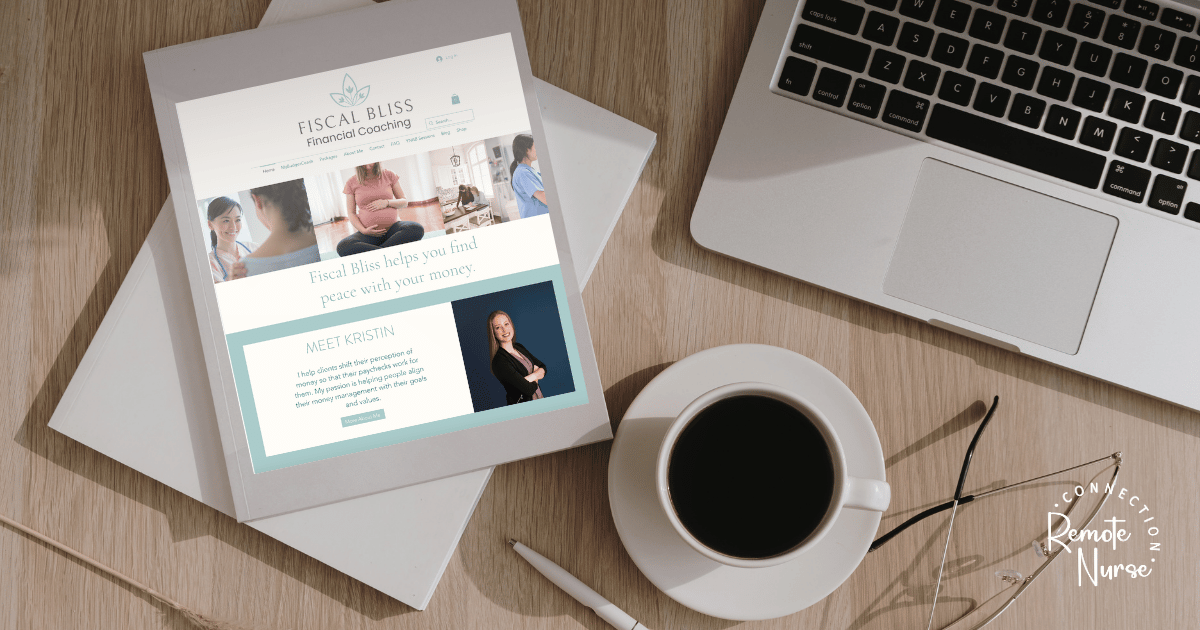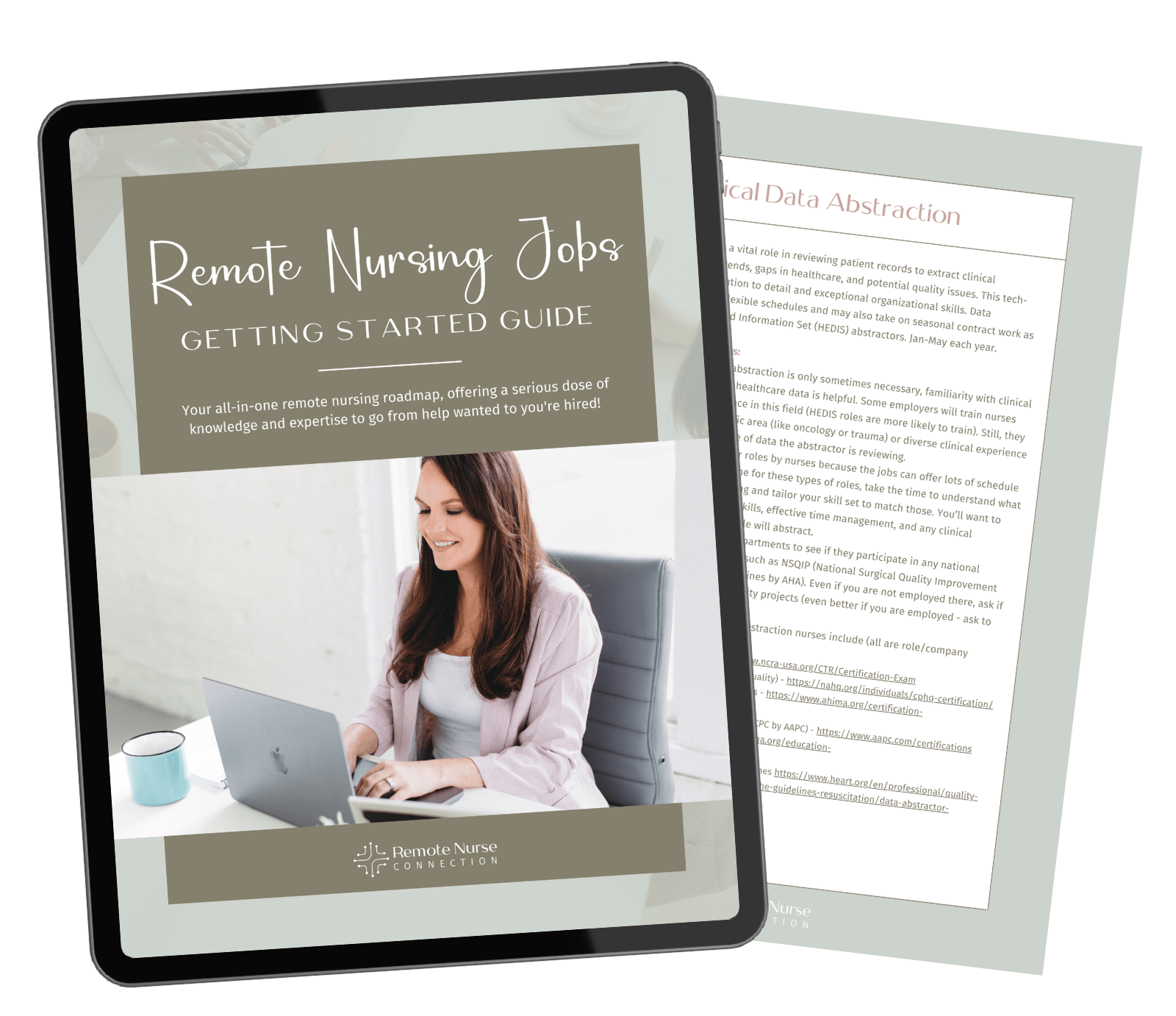
Has money ever kept you from achieving your goals? Have you ever felt stuck because your personal finances are out of control? You aren’t alone. On my professional journey, I have met many nurses who felt as if they were slaves to their money. Some of the most educated professionals I have worked with lacked financial literacy, just like many of our intelligent patients lack health literacy. Keep reading for some financial wellness tips for nurses you can implement today.
Who am I?
Hi! My name is Kristin Wade. I earned my nursing degree at the young age of 21 and swore that would be my lifelong profession. I had worked hard to graduate a semester early and landed my dream job in the newborn intensive care unit (NICU). I had worked odd jobs such as babysitting and grocery bagging to get through nursing school. I knew that my first “real” job would come with real money, and I needed to make a plan for my money. That is when I fell in love with budgeting. I loved the control I felt over my life. Even if things went wrong (spoiler alert: many things did), I had a way to move things around and get back on track.
Slowly, I became the unofficial source for personal finance tips. Standing around for septic workups or eating yogurt in the breakroom allowed for easy conversation about tough topics. How do I find my credit score? How will I afford unpaid maternity leave? Should I be paying down debt or saving? These were just a few of the topics that would inevitably come up as I grew closer to the nurses around me. One day, someone asked how much I charged for my help with these topics. I remember laughing at the thought. I had since earned my Master of Science in Nursing and had plans to work my way up the healthcare ladder. No one pays for this type of advice, or so I thought.
The COVID pandemic hit and changed everything for me. The year 2020 was a heavy one. My marriage had ended, my daughter was less than a year old, and I suddenly burned out professionally. I began to resent my work. Unique cases and codes were no longer interesting, I could only imagine what it felt like as a new mother. I was exhausted from pumping breast milk, barely sleeping, and navigating a divorce alone. At the end of the day, I had spent all of my energy caring for other people’s children and had nothing left for my own. Something had to change.

From Nurse to Entrepreneur
I thought back to that nurse’s statement: could I get paid for giving financial advice? I didn’t want another degree or expensive programs. That’s when I discovered financial coaching. My first coaching client was myself. I took a hard look at my budget and cut back wherever I could. After two years of planning and saving, I quit my dream job and didn’t look back. I had diligently saved so that I had a full year of expenses covered. That was my deadline to succeed or return to the nursing profession.
I have had the honor to serve healthcare workers and many other professionals for the last two years. The number one question I get asked is, “How did you go from nurse to financial professional?” It doesn’t make sense on the surface. However, the underlying work is the same. I use my nursing skills daily. Assessing, prioritizing, delegating, and communicating are huge. Behavioral change is the same, no matter the goal. Learning about change models for my Master’s degree was the best preparation for this new career, though I despised them at the time. Helping someone navigate financial change is no different than helping them through health changes.
10 Tips for Nurses
Here are my top 10 financial tips for nurses and other healthcare professionals. These are a culmination of my two years of full-time coaching, as well as the many years before that of unofficial coaching
1. You need a system, STAT
No, a spreadsheet you get off of Etsy isn’t going to cut it. The only way you can make a change is if you’re acutely aware of your behaviors. An app can help with that. You are a busy professional. You should have an online tool that is easy to access on the go and can connect to your bank accounts. I coach on a platform called MyBudgetCoach, which offers an affordable way to get coaching when you need it. Grab a free trial, which comes with a free session with me.
2. Knowledge is power
Keep tabs on all employer perks. Check out discounts, freebies, and promotions through your insurance plan. Take as many as you can. If your employer has policies on topics such as free tuition or reimbursing student loans, print out hard copies to keep on hand. I have personally been burned by these policies, and having the original copy saved me thousands of dollars in reimbursements.
3. CYA: You need to protect yourself
If you have a license, you need professional liability insurance. I carried a policy through the Nurses Service Organization (NSO) and, luckily, never had to use it. You may think, “I will be careful and have no medication errors!” Your license can be threatened by almost anything and anyone. Any person can make an anonymous report to the Board of Nursing, which could impact your ability to practice (hint: ability to make money).
4. Always ask for a raise
Every year, keep track of your accomplishments with your employer. Overtime shifts, precepting, extra activities you participate in, and other notes. Keep copies of your continuing education certificates. This is the key to asking for an annual raise. Even if they say no, you’re building a fantastic binder in case you change jobs.
5. Talk about your pay
Speaking of pay, you should be talking about pay. The only party that benefits from privacy is the employer. I highly recommend starting the conversation and sharing what you feel is appropriate. You would be amazed at the difference in pay even in a “set rate structure” many hospitals have. When I changed jobs, I was making $5/hour more than my peers who had dedicated over a decade to that employer.

6. Don’t be afraid to try something new
You may love the area you work in now, but don’t be afraid to change it up! I was with my first employer for seven years and received three small raises. I was comfortable but made the jump to a new hospital to learn new skills and make more money. I made fantastic new connections, and though I didn’t stay long, it was worth the discomfort.
7. Retirement comes first
How much are you saving for retirement? It should absolutely come first. You should be putting away a minimum of 10% pre-tax. Seems impossible? Let’s work on your budget together; I can find wiggle room. If you don’t start now, you likely never will. We all know those nurses who want to retire but can’t because they do not have enough in retirement savings. I don’t offer retirement planning specifically; however, your budget gives you an idea of what you can afford to save. Financial planning with a certified advisor is a fantastic second step after you learn how to budget.
8. Hesitate with contracts
This applies to anyone looking to start a new job, including nursing students. You may be tempted by a sweet contract and bonus. However, they are rarely worth it when paid upfront. Check out this article I wrote for new graduate nurses to learn more.
9. Get creative with side gigs
As a nurse, you have a wide range of options for making extra money beyond overtime shifts. I took my knowledge of health and anatomy and got a fitness certification. Several days a week, I teach a cardio kickboxing class at local gyms. It doesn’t pay as well as an overtime shift, but there’s more to it than money. I get free gym memberships, free childcare for the gym, a small paycheck, and stay fit. It has improved my public speaking and confidence as a business owner. When I first started my business, I would work in the gym lobby while my toddler was safely watched by their childcare for free. There are opportunities for medical spas, IV infusion clinics, and many other employers.
10. Have an exit plan
Yes, you. Even if you swear you will never leave your job. You should always have a minimum of 1 month of expenses in an emergency fund, ideally 3-6. A high-yield savings account is the best place to park that money so that the interest earned can compete with inflation. How do you know how much you need? From the budgeting tool you signed up for, of course. Life happens quickly, and having a financial cushion gives you control and flexibility. And no, going into credit card debt is not an acceptable emergency plan.
Your partner can contribute as well, and they should. Though I navigate my finances as a single mom, a fellow coach wrote a fantastic article on budgeting with a partner.
Don’t Go It Alone
Phew! That was a lot. You may be feeling overwhelmed, empowered, or a little of both. Pick one tip and implement it today. Bookmark this article and revisit it when you’re ready. Get a free trial of the budgeting program I use for my clients and start tidying up your personal finances. All of your hard work will be worth it! I could have never taken the jump I did without diligent planning, and I would be honored to help you do the same.
Author

Kristin worked as a registered nurse in New Mexico for 8 years before deciding to step away from the bedside. Now, she helps healthcare workers manage their money so that they can pay off debt, budget effectively, and break the paycheck-to-paycheck cycle. She is a firm believer that money should be a tool, not a burden. Kristin is a certified budgeting coach and is earning her Accredited Financial Counselor (AFC) designation.
View all posts
Remote Nurse Connection is proudly Ad-free. All opinions are my own. This post may contain affiliate links, which means I’ll receive a commission if you purchase through my link, at no extra cost to you. As an Amazon Associate, I earn from qualifying purchases. Please read full disclosure here.
Browse A Bit More On the Blog…
Remote Nursing Internships: What They Are and Where to Find Them
Nov 17, 2025
Remote nursing internships are one of those phrases that might make you go hmmmm. Like, do those really exist? Yep, they sure do! As more and more healthcare jobs shift into remote or hybrid setups, some employers are bringing in nursing students to train them while...
Remote Nurse Case Manager Jobs: How to Get Started
Sep 27, 2025
Remote nurse case manager jobs are one of the most common entry points for nurses who want to transition from bedside work to a remote setting while still maintaining direct patient interaction. It's also one of the most abdundant job postings you'll see when...

Your Insider Connection to Remote Nursing Success
I help nurses find the best-fit remote jobs that bring flexibility, personal freedom and alignment, and continued professional growth.
CATEGORIES

Free Getting Started Guide
FOR LANDING A
REMOTE NURSING POSITION!



